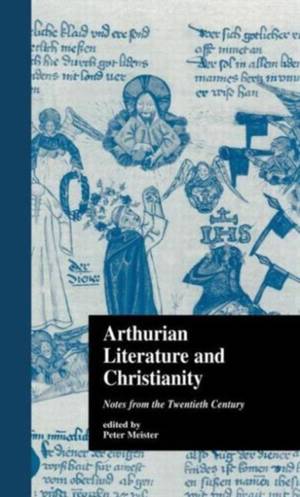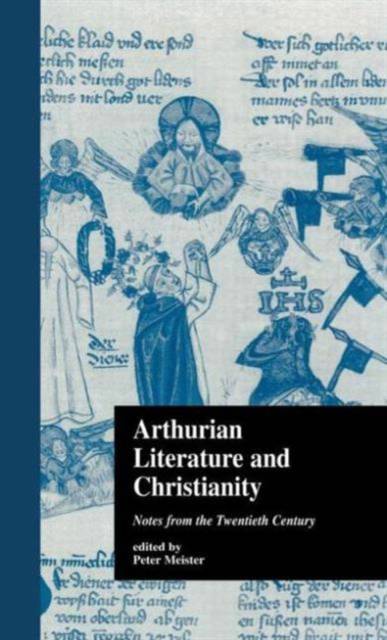
- Afhalen na 1 uur in een winkel met voorraad
- Gratis thuislevering in België vanaf € 30
- Ruim aanbod met 7 miljoen producten
- Afhalen na 1 uur in een winkel met voorraad
- Gratis thuislevering in België vanaf € 30
- Ruim aanbod met 7 miljoen producten
Zoeken
Arthurian Literature and Christianity
Notes from the Twentieth Century
€ 290,45
+ 580 punten
Omschrijving
Intended as "the other bookend" to Jessie Weston's work some eighty years earlier, this essay collection provides a careful overview of recent scholarship on possible overlap between Arthurian literature and Christianity. From Ritual to romance and Notes, taken together, bracket contemporary inquiry into the relationship (if any) between Jesus and Arthur. T.S. Eliot's "The Waste Land" is here regarded as one strand joining this matter to many a recent literary riddle (such as the meaning of the term "postmodernism"). Without reprinting work readily available elsewhere and no longer subject to revision through dialogue with fellow contributors, Notes attempts to do justice to all sides in twentieth century exploration of christianity's contribution to an art form which is also grounded in early European polytheism ("paganism").
G. Ronald Murphy, S.J., Kathryn M. Talarico, Deborah Rose-Lefmann and Anne Huntley-Speare contribute essays prepared especially for this book, which also includes revised reprints of work by Tom Artin and Henry Kratz. Selections from Jacques Ribard, I for William and Joachim Bumke are available here for the first time in English.
Jew, Christian and secularist will find their own world view respected throughout, though rarely rubberstamped. Similarly, "christianists" (those who, whatever their own religion, regard medieval Christianity as relevant or central to medieval Arthurian literature) agreed more readily than "nonchristianists" to contribute to the volume. By a process of self-selection, then, the nonchristianist position is somewhat underrepresented in Notes, perhaps because that stance was dominant throughout the decade in which this survey was assembled.
G. Ronald Murphy, S.J., Kathryn M. Talarico, Deborah Rose-Lefmann and Anne Huntley-Speare contribute essays prepared especially for this book, which also includes revised reprints of work by Tom Artin and Henry Kratz. Selections from Jacques Ribard, I for William and Joachim Bumke are available here for the first time in English.
Jew, Christian and secularist will find their own world view respected throughout, though rarely rubberstamped. Similarly, "christianists" (those who, whatever their own religion, regard medieval Christianity as relevant or central to medieval Arthurian literature) agreed more readily than "nonchristianists" to contribute to the volume. By a process of self-selection, then, the nonchristianist position is somewhat underrepresented in Notes, perhaps because that stance was dominant throughout the decade in which this survey was assembled.
Specificaties
Betrokkenen
- Uitgeverij:
Inhoud
- Aantal bladzijden:
- 376
- Taal:
- Engels
- Reeks:
Eigenschappen
- Productcode (EAN):
- 9780815332626
- Verschijningsdatum:
- 1/08/1999
- Uitvoering:
- Hardcover
- Formaat:
- Genaaid
- Afmetingen:
- 146 mm x 227 mm
- Gewicht:
- 376 g

Alleen bij Standaard Boekhandel
+ 580 punten op je klantenkaart van Standaard Boekhandel
Beoordelingen
We publiceren alleen reviews die voldoen aan de voorwaarden voor reviews. Bekijk onze voorwaarden voor reviews.







